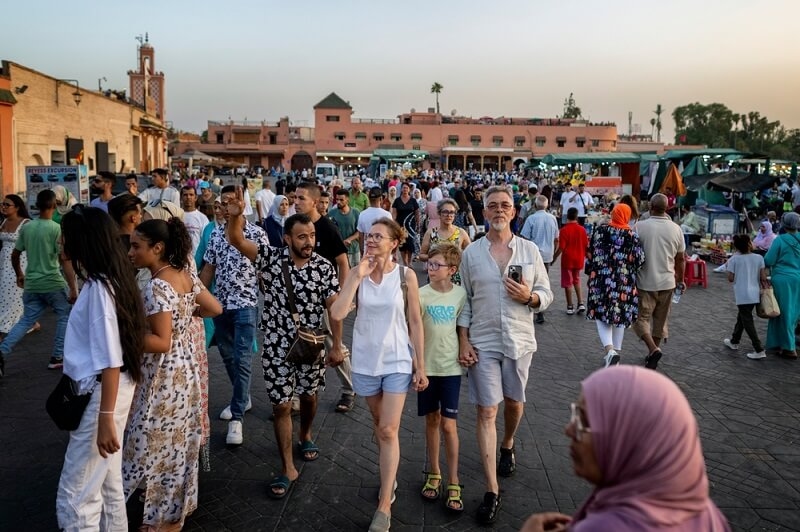Is It Safe to Travel in Africa for First-Time Visitors?

Africa's vast geographic landscapes, cultural diversity, and magnificent wildlife captivate the imagination. Still, for many first-time visitors, questions loom: Is it safe to travel in Africa? The media often portrays adverse events regarding travel in Africa and outdated stereotypes, contributing to potential visitors' fears and trepidations.
The fact is that Africa is not one blanket place; it is a continental mass of 54 different countries with unique security situations, tourism infrastructure, and welcoming people. Safety is an issue that should be respected, but given the proper context, planning, and an open mind, it can also be dealt with accordingly.
This guide provides realistic and easy-to-follow suggestions for first-time visitors: travel safety advice, ideas about which places are likely to be safer in Africa, and how to make the most of your trip to Africa with confidence. Whether you are counting on traveling with friends, a partner, or alone, here is your no-nonsense guide.
Understanding the Question: Is It Safe to Travel in Africa?
To begin with, let's dispel this myth: asking "Is it safe to travel to Africa?" is similar to asking "Is it safe to travel to Europe?" or "Is Asia dangerous?" The answer to these questions is always contextual—where you go, how you go, and how prepared you are.
Many African countries are sustainable tourism countries, with millions of visitors annually. Countries such as Morocco, Botswana, South Africa, Kenya, Tanzania, Ghana, Namibia, and Rwanda have tourism systems in place and are relatively safe travel destinations.
Conversely, some countries have political unrest, crime, or health problems, much like the claims against other parts of the world.
African Countries Safe to Visit for First-Timers
If you're traveling to Africa for the first time, stick to countries known for being safe and having a reputation for safety and security for tourists. You also want to be in a place with excellent transport options and reputable tour operators. Here are a few countries in Africa that are considered safe for first-time visitors:
South Africa
- One of the best countries to visit in Africa. South Africa has world-class cities such as Cape Town and Johannesburg, exciting safaris in Kruger National Park, and the coastal scenery of the Garden Route.
- Use common-sense precautions: Don't walk alone in urban areas, for example.
Namibia
- Namibia is known for its beautiful deserts, wildlife, and low crime rates.
- A great self-driving and road trip destination, as they have excellent roads and infrastructure.
Botswana
- World-famous for the Okavango Delta and Chobe National Park.
- Botswana safari experiences—one of the safest safari destinations in Africa with a strong ecotourism model.
Rwanda
- One of the cleanest, safest, and most law-abiding countries with a low crime rate.
- Became well-known for gorilla trekking and vibrant culture.
Morocco

- Diverse landscape—desert, mountains, and cultural cities including Marrakech and Fes.
- Mostly petty theft, so be vigilant in tourist areas.
Tanzania & Kenya
- Rich wildlife and natural environment
- Popular destinations with guided safaris—a tour operator deals with all safety issues.
Ghana
- A good first experience in West Africa, friendly people, and they speak English.
- The tourism industry is emerging and is growing.
These destinations are great for newcomers looking for a balance between adventure and safety. You can always research the region within a country before booking.
Safety Tips Africa Travel Beginners Should Know
Before you go, please familiarize yourself with these essential Africa travel safety tips, which can make all the difference.
a. Do Your Homework
- Read recent travel advisories from trusted sources.
- Join travel forums and social media groups for real-time advice.
b. Choose a Reputable Accommodation and Tours
- Look for well-reviewed hotels and lodges.
- Book tours through certified operators or local guides.
c. Avoid Political Gatherings or Protests
- Even peaceful demonstrations can turn volatile quickly.
- Stay updated on local news and ask your hosts about any unrest.
d. Blend In Where Possible
- Dress modestly and in neutral colors.
- Avoid flashy jewelry, high-end electronics, or large amounts of cash.
e. Use Local Transport Wisely
- Opt for prearranged transfers or reputable ride-hailing apps in cities.
- Public transport varies greatly—ask locals or your accommodation staff what’s safe.
f. Keep Copies of Your Documents
- Have digital and physical copies of your passport, visa, insurance, and emergency contacts.
g. Health and Hygiene Precautions
- Drink bottled or filtered water.
- Use insect repellent to prevent malaria and other mosquito-borne diseases.
- Pack a travel health kit with basics like antiseptics, painkillers, and personal medications.
Solo Travel in Africa: What to Expect
Solo travel in Africa is possible and increasingly popular, especially among women, but it comes with unique considerations.
Benefits:
- Freedom to choose your itinerary.
- Opportunities for deep cultural connections.
- Group tours make it easy to meet others.
Tips for Solo Travelers:
- Start in beginner-friendly countries like South Africa, Morocco, or Ghana.
- Stay in guesthouses, hostels, or eco-lodges known for their traveler community.
- Avoid walking alone at night or in isolated areas.
- Take part in group activities or join local excursions to stay social and safe.
Safety often comes down to instinct. If something feels off, trust your gut.
Cultural Awareness: Respecting Local Norms
Respecting local customs is another key part of staying safe. Cultural sensitivity goes a long way toward earning respect and avoiding conflict.
Tips for Cultural Etiquette:
- Ask permission before photographing people.
- Learn a few phrases in the local language.
- Observe and follow dress codes, especially in religious or rural areas.
- Be discreet about public displays of affection in conservative regions.
Being a responsible traveler is part of staying safe.
Common Scams and How to Avoid Them
Scams happen in every major tourist destination—Africa is no different. Knowing what to watch for can help you avoid trouble.
Typical Tourist Scams:
- “Helpful locals” offering unsolicited tours and then demanding payment.
- Fake taxi drivers at airports—always use official or pre-booked cabs.
- Currency exchange tricks—use licensed forex bureaus or ATMs.
- Pickpocketing in busy markets—keep valuables close and bags zipped.
Avoiding these scams is a matter of staying alert, avoiding distractions, and being aware of your surroundings.
Health and Travel Insurance: Your Safety Net
Preparing for medical and travel emergencies is a significant component of African travel essentials.
What You Need:
- Comprehensive travel insurance covering health, theft, and trip cancellation.
- Vaccinations recommended for the country (e.g., yellow fever, hepatitis, typhoid).
- Malaria prophylaxis. If you're heading to high-risk zones, consult your doctor in advance.
- Emergency contact numbers (local embassy, insurance hotline, nearest hospital).
Don’t skip insurance—it’s your backup plan if something goes wrong.
Packing for Safety and Peace of Mind
Your packing list can directly support your safety. Here’s what to include:
Essential Safety Items:
- Money belt or neck wallet
- Power bank and adapter plug
- Padlock for bags or lockers
- Travel first aid kit
- Sunscreen and insect repellent
- Personal water filter or purification tablets
- Torch or headlamp
- Copies of essential documents
- Offline maps or navigation apps
A well-packed bag not only improves comfort but also enhances independence and confidence.
Travel Insurance: Your Non-Negotiable
As a first-time traveler to Africa, travel insurance is critical. It covers unexpected events like
- Medical emergencies
- Lost luggage
- Theft
- Trip delays or cancellations
- Evacuation from remote areas
Choose a policy that covers adventure activities like safaris or trekking if you plan on doing those.
The Power of Local Knowledge
No guidebook can match the insight of a local. Could you tap into it?
- Ask your hosts for recommendations and warnings.
- Use local guides—they boost safety and add depth to your experience.
- Attend cultural orientation briefings if available at your hotel or lodge.
This simple step is often the most effective way to stay safe and have a richer journey.
Final Word: Travel Smart, Not Scared
So, is it safe to travel to Africa? Yes, if you travel wisely. Fear should never overshadow your adventure spirit, but should never be dismissed. Africa is beautiful, daring, and stunning; it offers excellent hospitality and wonderful memories. Like any location, it just requires awareness, preparation, and respect.
Regardless of your destination—whether the savannas of Kenya, deserts of Namibia, or markets of Morocco—this beginner Africa travel guide will prepare you to roam with confidence and curiosity. Remember: the safest travelers are not the most fearful—they are the most informed.
This content was created by AI

